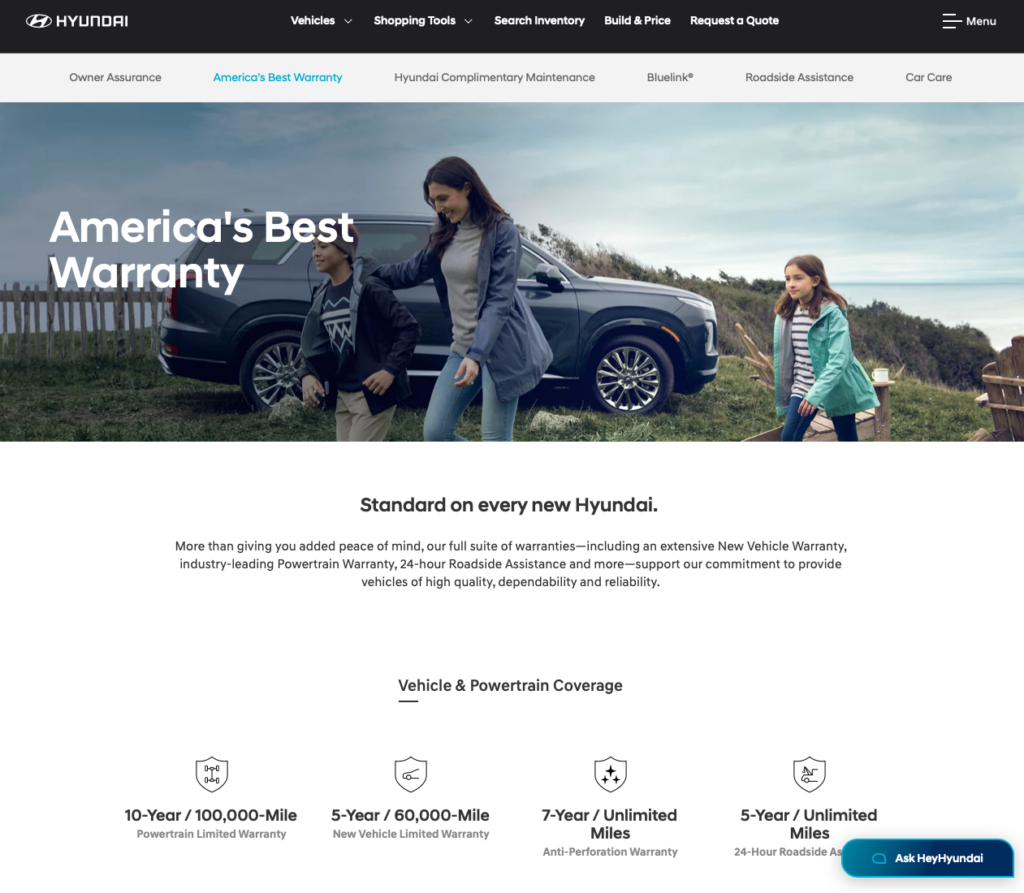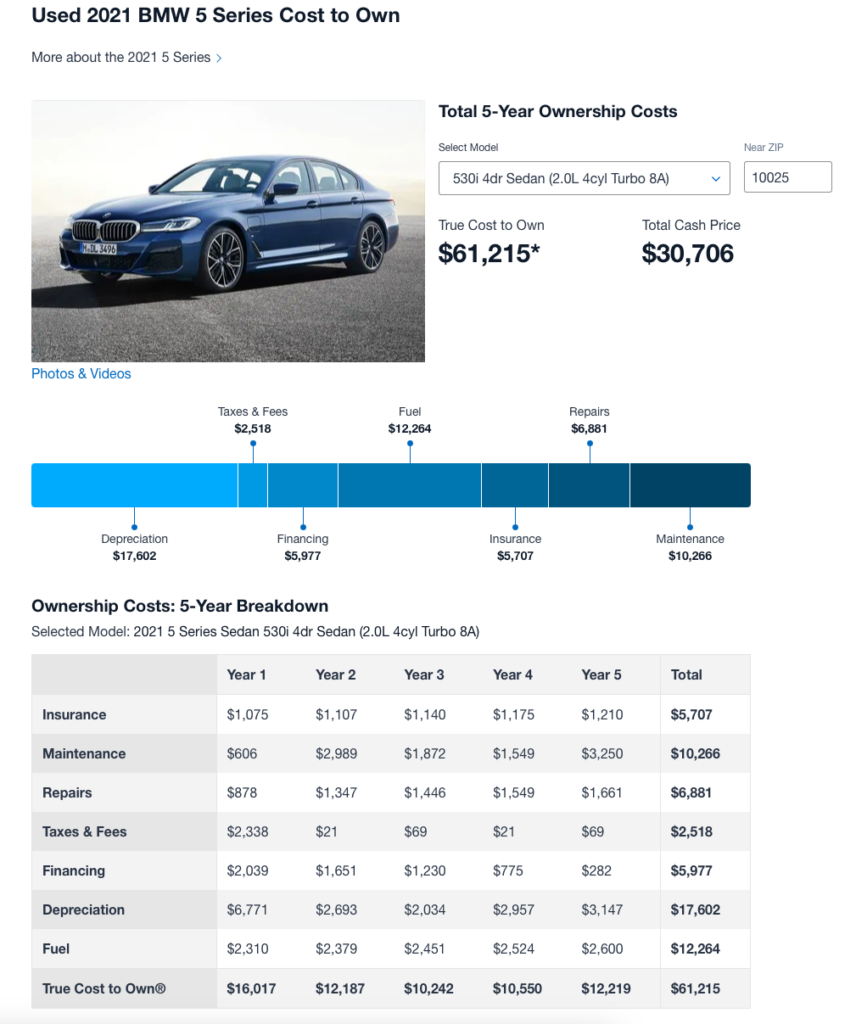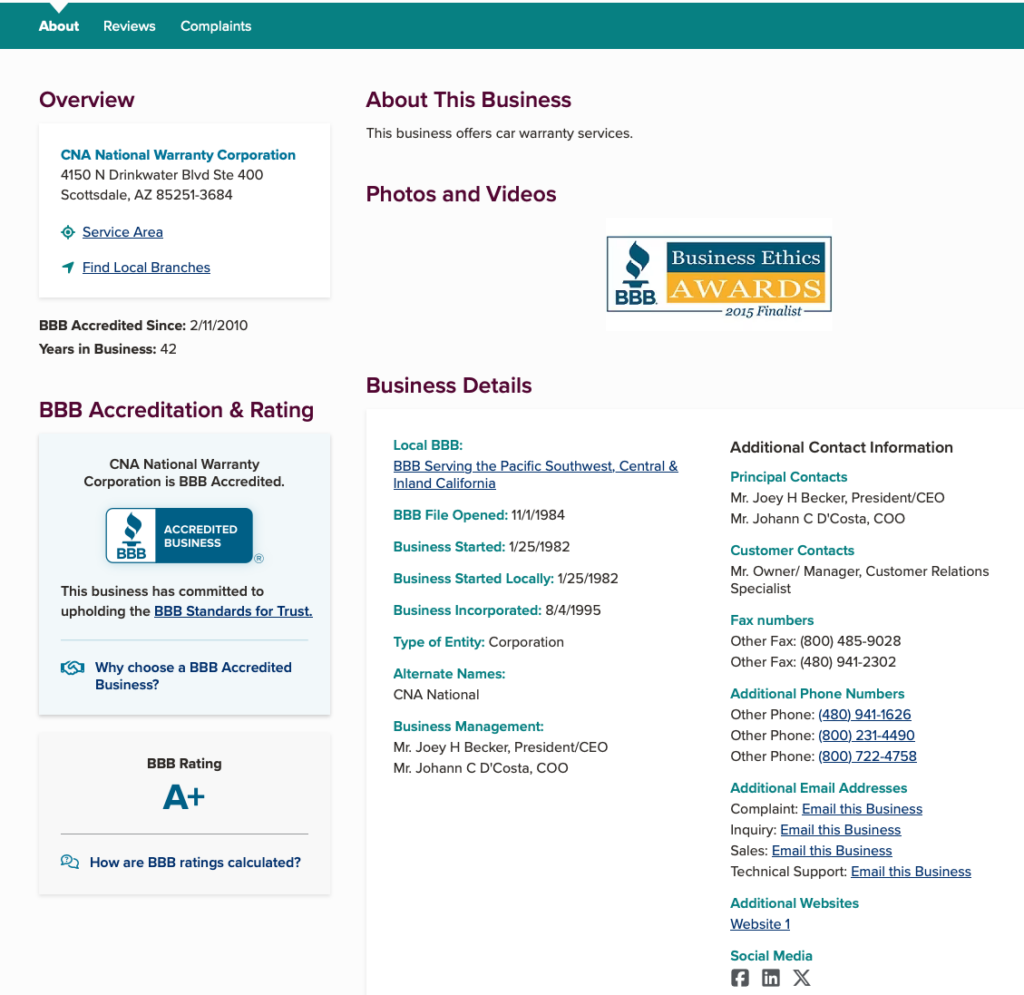For today, we’ll focus on used car warranties. In a future post, we’ll talk about other protection plans that cover everything from smart-plugs to washing machines.
In an earlier post on car buying (here), I touched on the topic, but it probably merits a bit more detail. It’s a significant purchase and can cause some anxiety, which just makes the car buying process even more painful than it should be.
What Is An Extended Warranty?
Great question. Before we consider shelling out a large sum of money, we should make sure we know what we’re talking about.
But First, What’s a Warranty?
Just about every new vehicle comes with a manufacturer’s warranty. Hyundai is known for offering one of the most comprehensive and long-lasting warranties on its vehicles. From their website:

If your Hyundai’s engine dies at 99,999 miles, and you’ve owned it for 9 years and 11 months, Hyundai will fix it or replace it for no charge. That’s nice.
Many of us wouldn’t buy a new car without a warranty. We want to know that the manufacturer stands behind their vehicles. We want an assurance that if something breaks, the manufacturer will fix it. After all, we’ve shelled out a good chunk of change to purchase the vehicle.
Used Vehicles
I am a huge fan of used vehicles. While I love the new car smell and there is nothing quite like driving a new vehicle off the lot with single digits on the odometer, we pay a huge premium for this.
My most recent vehicle is a 2021 BMW 530i. I’m pretty cheap when it comes to most things, but I am a car nut, so I splurge a bit here.
in 2023, when I was shopping for my next ride, I checked out the new 2023 BMW 530. It was pretty sweet. Outfitted with the features I wanted, the MSRP (manufacturer’s suggested retail price) was around $69,000. Sorry, that’s crazy. I love cars, but I can’t justify spending that much.
But, the certified pre-owned 2021 BMW 530i with 25,000 miles and equipped with all the same features was $49,900. I went on a Tuesday morning, there was no one else buying cars at that time, I was friendly, they came down a bit on the price and came up a bit on my trade-in, and I went home with a slightly used new-to-me vehicle.
Used Vehicle Warranties
While just about every new vehicle comes with a manufacturer’s warranty, most used vehicles do not. If we want to have the same protection as a new vehicle purchase, we have a couple of options.
- Manufacturer’s warranty – most manufacturer’s warranties are transferable. That means, if you buy a Hyundai from me after I’ve had it for 5 years and 50,000 miles, Hyundai will continue to cover you for the remainder of the warranty.
- Certified Pre-Owned – Many dealerships will take lightly-used trade-ins that are in good condition and will package them with their own extended warranty. My BMW came with the remainder of the 3 year/36,000 mile warranty, and the dealer added its own certified pre-owned warranty extension that covers me for a few more years and unlimited miles.
- Extended Warranty – These may be offered by the manufacturer, or by a third party. The terms, conditions, coverage and pricing varies widely. We’ll talk more about these in a minute. This is a way to purchase similar protections on a used vehicle.
Do I Need An Extended Warranty?
This is a really hard question to answer. And it is especially hard when we’re sitting in front of a salesman, who is pushing the extended warranty. So let’s pause for a sec and think about this a little.
Here’s another more basic question: How would I pay for an expensive repair?
The average used car price is about $33,000 according to iSeeCars. And according to Nerdwallet, the average monthly payment on a used car is $520.
These are averages. In my brief stint as a used car salesman, I often saw folks who were paying over $1,000 per month for their used vehicle. And that was 4 years ago.
The point is that car purchases, even used car purchases are expensive, and most of us will be making monthly payments for many years.
Given this, how would we cover a $100 expense, a $500 expense, or a $5,000 expense. I’m not trying to scare you, but think about that. What could be worse than writing our monthly loan payment check of $520 while our slightly used Toyota Camry sits in the driveway undriveable because we can’t scrape together the cash for a costly repair?
Insurance
As a car salesman, I was told not to refer to extended warranties as insurance, but to me, they are quite similar. I hate insurance. Every month, I pay a ridiculous amount for car insurance, health insurance, dental insurance and home insurance. It drives me nuts.
As angry as this makes me, I am well aware that I am in no position financially to pay to replace my car, rebuild my home from the ground up, or pay for an extended illness that may require costly hospital stays and expensive diagnostics.
I pay for insurance because I know that even though I am unlikely to use it, in the event that I do, I will need it. I’m not happy about it, but I have it.
I look at extended warranties the same way. A costly vehicle expense could be catastrophic. I may not end up sleeping on the street, but it could throw a huge monkey-wrench into my budget.
What Should I Expect to Pay For Repairs?
This is the million dollar question. If I know what I’m likely to pay for repairs, I can compare this to the cost of the extended warranty and see if the additional cost makes sense.
While not a definitive answer, there is a way to find out. The good people at Edmunds publish the total cost of ownership for a huge range of vehicles. A duck duck go search (sorry Google) for 2021 BMW 530i total cost of ownership shows me this:

There is a lot of great info here for someone considering a car purchase, but let’s focus on the repair cost.
If I’m looking at about $7,000 in repairs over the next 5 years, if the 5 year extended warranty is less than $7,000, it may be a good deal.
May be?
What do you mean by it may be a good deal? Here’s where we get into terms, conditions and other fun stuff.
I love to buy certified pre-owned vehicles. I know that I’m paying more for the vehicle than I would at Joe’s car lot on the corner, but that’s because it is sold by a dealer who is probably a little more financially stable than Joe, and it comes with an extended warranty from the manufacturer.
BMW has been around a while and will likely still be around after my 2021 530i warranty expires. They’ve got lots of dealerships so even if I move, I can still get warranty service done.
These are some hints about things to think about when buying an extended warranty.
Who Is Providing Coverage?
Let’s say I’m buying a used vehicle at Carmax and I buy their Maxcare product. Duh, that’s an easy one. Carmax is providing coverage, right?
Sorry, that answer is incorrect. Scroll to the bottom of the Carmax warranty page and we see:

I can tell you from experience that Carmax is very up-front about this and will provide customers with documentation on the provider and the coverage, but it is important to know that these warranties are often provided by a third party.
Can I Trust Them?
No, You can’t trust anyone. Do your research.
The better business bureau is a great place to start. Let’s see what they have to say about CNA, who writes Carmax warranties.

A+. That’s a good grade.
BBB also has reviews. You can check here or you can search online.
Don’t trust, verify.
What Do They Cover?
If my heat stops working, is that covered? If my car is in the shop for an extended period, will they pay for a rental?
There are lots of different warranties and warranty providers. Some cover just the powertrain. Some cover bumper to bumper. Some are named exclusion warranties. This means that they specify everything that’s not covered. Everything else is.
Be sure to spend some time analyzing the coverage. We’re paying a lot of money for the warranty, we need to know what we’re getting.
Price
Powertrain-only coverage will likely cost less than bumper-to-bumper. Many plans have a deductible that we’ll need to pay. A higher deductible warranty will likely have a lower cost. Be sure to find out if the deductible is for the occurrence or for each item. For example, if you have 2 items that are broken and you bring your vehicle in to repair both, do you pay 1 deductible or 2?
Shopping
While a car dealer may only allow you to buy their warranty at time of purchase, there are many reputable companies that will sell you an extended warranty after you complete your purchase. I am a huge fan of Cartalk. I loved their radio show and am sad that Tom is no longer with us. Click and Clack are funny and provide excellent advice. They have a few things to say about used car warranties here.
Getting Your Car Repaired
So, we’ve decided to go with the warranty. We have our 1st car problem. Where do we go to get it fixed?
Can I take my car to my usual mechanic? Maybe. Some will allow you to take your vehicle to any certified mechanic while others will require you to use one of their mechanics. Be sure to find out so you’re not surprised.
Scheduled Maintenance
Many extended warranties only cover repairs, not maintenance. They’ll pay to fix a broken infotainment system, but won’t pay for your oil change.
But, they will likely require you to perform all maintenance specified in the owner’s manual. Skipping a brake flush, whether forgotten or intentional, may void the contract. Be sure to know what is required and if you’ll need to provide receipts as evidence.
Other Exclusions
Many companies will not provide coverage if you use your car for Uber, Lyft or Doordash. And if you buy a used pick-up and throw a plow on to earn a few bucks in the winter, you may void your coverage. Read carefully.
Returns
Oddly enough, you can sometimes return an unused portion of a warranty. It will be worth less than you paid, but some companies will let you sell back the remaining warranty if you decide you no longer want it.
Transfers
And you may be able to transfer ownership of the warranty to a person buying your vehicle. This can add to the price you’ll be able to ask for the vehicle.
Who’s Selling This?
I always like to think about who is on the other side of my transaction. It gives me insight into their motivations. The company selling the extended warranty is doing so because they make money from them. They are betting that they can price this so that they’ll pay out less in claims than they will earn on warranty sales.
They don’t want to pay you, so be sure you understand the rules and follow them to the letter. If they require receipts for all maintenance, don’t change your own oil to save a few bucks unless you verify that receipts for the oil and filter will be sufficient.
Wrap-Up
Extended warranties are expensive, but so are car repairs. What’s your plan for paying for a large expense. If you don’t have one, an extended warranty could be worthwhile.
An extended warranty is expensive and likely comes with a lot of fine print. As cumbersome as it may be, read this carefully and ask for clarifications if necessary. And bonus points for asking the company providing the warranty v. the salesman who’s trying to sell you the warranty. Who do you think will give you a more accurate answer?
Be sure you know all of the benefits. The warranty may include roadside assistance or other benefits. If you’re paying for them, be sure to use them.
And finally, do your research. Check out the vehicle you’re buying. What should you plan for repairs? Check out the company providing the warranty, check out reviews, make sure you’re comfortable with the company with which you choose to do business. And review all of your choices. The used car dealer may offer one program, but there are many available elsewhere.
And finally, watch out for scams. Be very wary of any offer that comes to you via email, text, facebook, or other social media. It’s easy to determine that you’ve recently purchased a vehicle and you can be targeted with very legitimate looking offers. Read here for more.

